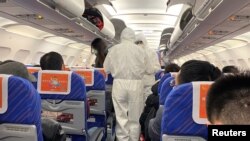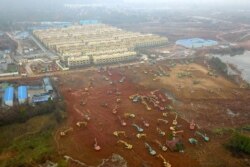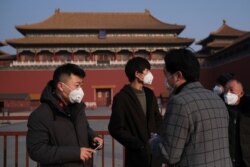Chinese President Xi Jinping has earned the praise of U.S. President Donald Trump and other world leaders for his handling of the coronavirus outbreak, which has killed 41 people and sickened more than 1,200. The disease has spread to about 15 countries, including the United States, France and Canada.
“China has been working very hard to contain the Coronavirus. The United States greatly appreciates their efforts and transparency. It will all work out well. In particular, on behalf of the American People, I want to thank President Xi!” Trump said in a tweet Friday.
The appreciation is the result of some impressive measures that include isolating nearly 40 million people across 18 cities and towns in the most affected province, Hubei. In two weeks, the government has requisitioned military doctors and has begun building two hospitals to house 2,300 patients in Hubei.
Xi is also reaching out to world leaders, including French President Emmanuel Macron and German Chancellor Angela Merkel, as part of an image management drive, because Chinese travelers are being named as carriers of the disease. He said China is ready to work with the international community to effectively curb the spread of the pneumonia cases caused by the new strain of coronavirus to uphold global health security.
Still, there are rising concerns that the challenge the disease presents may be much bigger than is evident from official reports. Despite some energetic action from the central government in Beijing, there are questions about delayed responses since the disease surfaced in mid-December.
Economic impact
Addressing the concerns is important because of the risk that the disease might severely damage the Chinese economy.
“Should the virus break out to a full-blown pandemic, it will certainly have a major impact on the economy,” Max Zenglein, head of economic research at the Mercator Institute for China Studies in Berlin, told VOA.
“At this stage, it is already likely to affect consumption- and travel-related services during China’s major holiday season. A clear picture should emerge within the next two weeks when the country’s economy returns to normal following the Chinese New Year,” he said.
Though Xi and other Chinese leaders have called for total transparency in reporting on the response to the virus, they also have made a point of emphasizing the need to “safeguard social stability.” The idea is to avoid the public panic that can occur if available information paints a grim scenario.
Officials in Wuhan city, where the highest number of infections has been reported, have punished eight people for wrongly reporting the situation on social media. This was seen as a signal to social media users not to challenge official information.
“In general, the government is using the traditional Chinese Communist Party approach,” Fu King-wa, associate professor at the University of Hong Kong‘s Journalism and Media Studies Center, was quoted as saying in media reports. The goal is “to control the information, to control the media, to control the narrative and to give the people the idea that the government is handling the issue.”
Disease features
The disease is exhibiting some sinister features, suggesting the actual extent of infections may be much larger than the Chinese government has reported. Many of the patients have been found without such telltale symptoms as coughing, fever and pneumonia. They have had other symptoms, such as a sense of tightening in the chest, which could be confused with other ailments. China's National Health Commission is struggling to determine the right kind of guidance it can give to doctors for making diagnoses.
Two of the five most recent cases of infection in Beijing have involved people who had no exposure to people from Hubei province. That has raised questions about whether there is another source. Different groups of scientists have suggested different animals, ranging from bats to snakes to mink, as the “reservoir” of the coronavirus.
There also is an ongoing battle to come up with a vaccine, but this may take a long time.
Millions of Chinese are traveling from their homes as part of the ongoing Spring Festival celebration. The extent of the infection rate could change as they begin to return home over the next four to five days, having mingled in crowds at bus stops, railway stations and airports. Transmission rates are highest in crowds.






